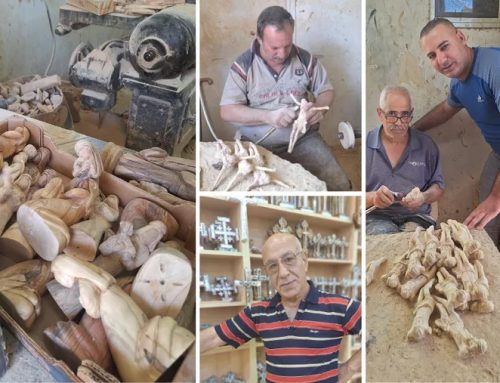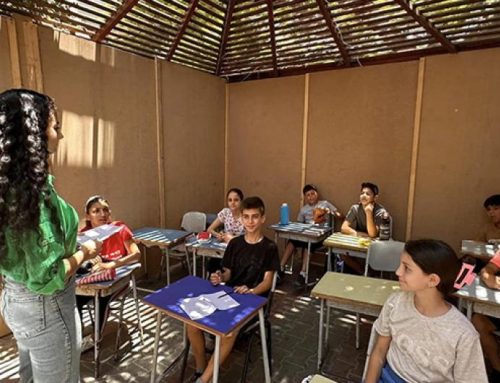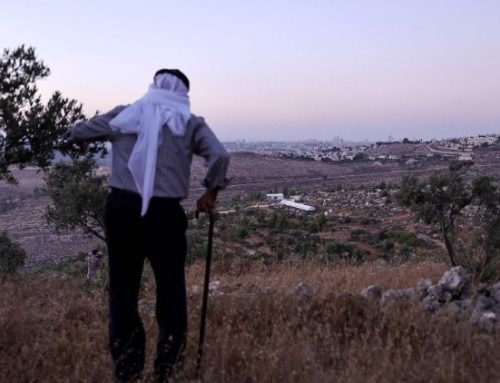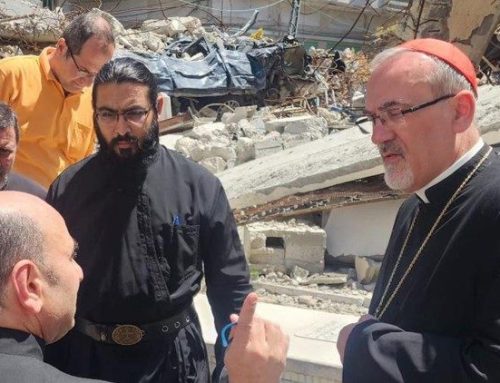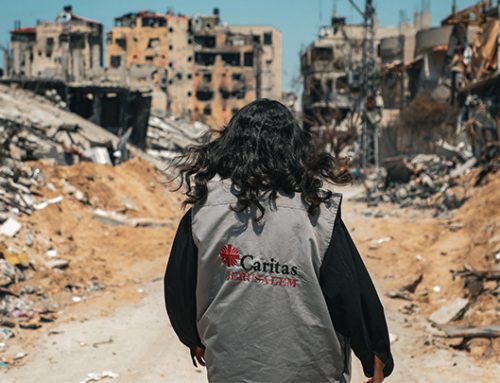A few weeks before the start of his assignment as Apostolic Vicar of Southern Arabia, Bishop Paolo Martinelli takes stock of his mission. He looks forward to working in a multi-cultural ecclesial reality and reflects on how the Document on Human Fraternity signed in Abu Dhabi shows the way for living a life of faith in harmony with all.
Bishop Paolo Martinelli, OFM Cap., is the new Apostolic Vicar of Southern Arabia. Earlier this month he left his ministry as episcopal vicar in the Archdiocese of Milan to gradually immerse himself in the new reality of his pastoral ministry. The universal importance of human fraternity, as described in the Document on Human Fraternity for World Peace and Living Together, offers an important reference point for his work there. He spoke to Vatican News about his new role and the context where he now serves.
What has been your approach to that portion of Church and interreligious relations that the Pope has entrusted to you?
I have tried to become more aware of what this assignment means. And now there have been some opportunities to hear from my predecessor, Bishop Paul Hinder, and the other members of the Bishop’s House in Abu Dhabi as well. We have tried to gain insights into the reality of this Apostolic Vicariate. I understand that it is a very complex, a very diverse reality, however, it also seems to be very promising, very beautiful and very significant for the Church today. A Church composed totally of faithful migrants who are there to work, and we, as a Church reality, have to serve them, their faith, their being there, their inhabiting that territory: not an easy reality, but which gives them the possibility to work. On the other hand, there is the daily encounter with the reality of Islam.
Not only is it a “Church of the Gentiles,” because it is composed of faithful who come from so many countries, from different cultures, even the priests themselves, are from many different countries. The other reality to consider is that this is the place where Pope Francis, three years ago, signed the Abu Dhabi Document together with the Grand Imam of Al-Azhar. So I think we have the task of cherishing the memory of this prophetic gesture, the importance of which is certainly even stronger now than it was three years ago.
You have just taken on your new responsibility, has the Document on Human Fraternity in any way already had an influence on your ministry?
I will travel at the end of June to Abi Dhabi, where there will be a Mass to begin my ministry. Then there will also be a meeting with the civil authorities, so there will definitely be an opportunity to have more direct contact with them. It seems to me that the Christian community is already trying find ways the Document on Human Fraternity event can be an important criterion for living out their faith and their relationships within that social context. On my part, I find this a particularly significant theme today, not only for that land, since it seems to me that this encounter that took place in that very land has something to say to the whole world at this time.
Europe is currently the focus of a war that has upset all the geopolitical balances of the continent. What is the perception of this situation in the area where you have been called to serve?
It seems to me that the history of the countries (here), the good relations that are being established in recent years, show the importance of the message that the Pope is giving both with respect to the war in the face of these dramatic and upsetting events (in Europe), but above all in the promotion of relationships of fraternity. This is a central theme, we must keep it in mind, and it is what we need in order to be able to address and overcome an international crisis of such devastating proportions. If we really don’t return to a spirit of fraternity, if we do not spread this message in our cultures, I think we really are heading for an increasingly complex situation that will be very difficult to overcome.
Would you say that the Human Fraternity message could be “exported” from the land where it was established, in a sense, sending a message of fraternity and peace to other lands where it is very much needed?
Exactly. It is interesting that it came from this context, so in the relationship between Christianity and Islam, it affirms something that is important for every man and woman of our time.
Your ministry as Apostolic Vicar of Southern Arabia is beginning during these weeks. Do you have any particular points that you feel you need to develop in your mission as part of your short or mid-term goals?
In studying some of the activities that are carried out by the Apostolic Vicariate, certainly there is this parish network that allows us to respond to a great need that our faithful have. And this is certainly something that needs to be strengthened and carried on, where the context allows, peacefully. Certainly my thoughts and heart, from the beginning, have gone to Yemen, which is part of the Vicariate and which at this moment, and for years, has been experiencing a very serious conflict. I think of the Sisters of Mother Teresa who suffered the loss of four of their sisters there because they did not want to leave that place, despite the threats, because they felt the duty of faith and of their vocation to care for people with disabilities. Then, there is another thing that strikes me, which I think is interesting to develop: I found the presence of many schools promoted by the Vicariate in collaboration with some religious institutes. This seems to be something traditional in the context of the Middle East: schooling environments as a point of intercultural and also interreligious encounter, since many of those who attend these schools are Muslims. This seems to me something that deserves to be developed: the place where one learns to weave positive relationships with people who represent cultural and religious diversity, so we can build a good life for all.
https://www.vaticannews.va/


